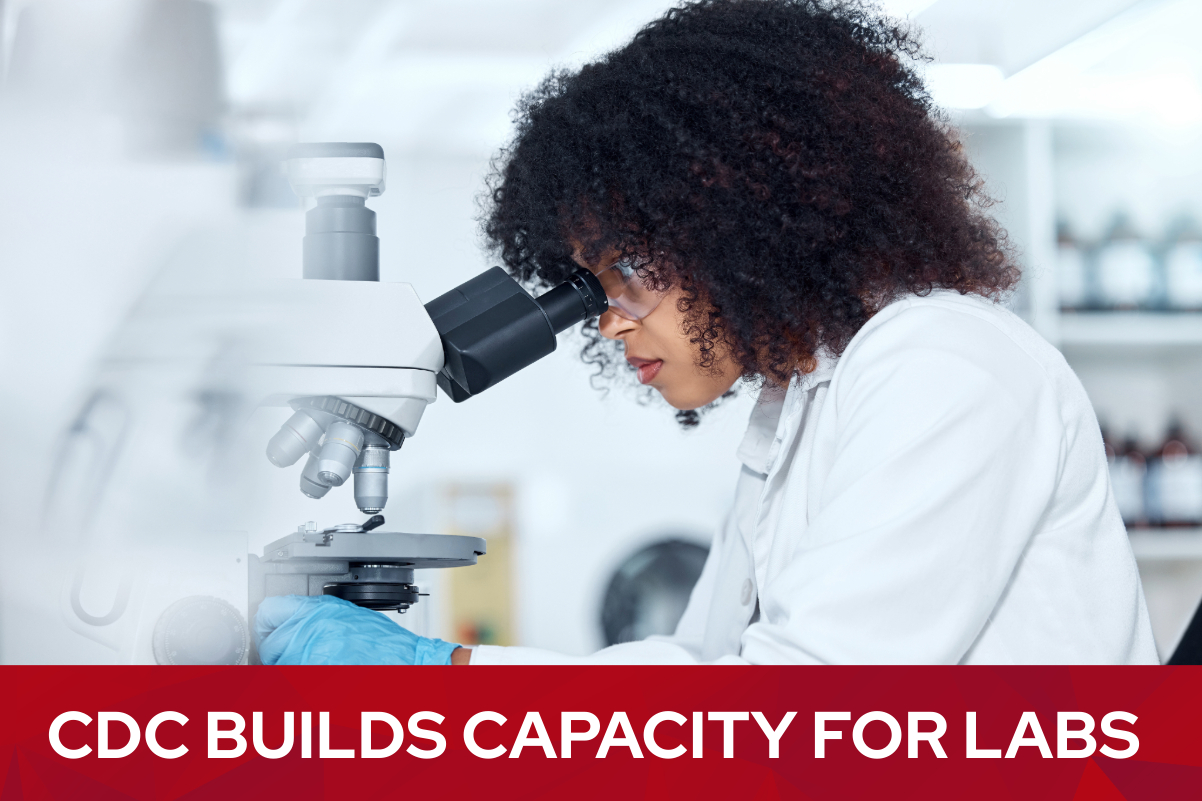
Clinical Laboratories Benefit from CDC OneLab
Clinical laboratories serve as the backbone of healthcare, pivotal in diagnosing diseases and monitoring public health. Amidst evolving health challenges, the Centers for Disease Control and Prevention (CDC) introduced CDC OneLab in 2020—to empower clinical laboratories and strengthen public health infrastructure. Through centralized access to essential information, laboratories can streamline operations, reduce errors, and ensure adherence to best practices. The initiative fosters collaboration among laboratory professionals, facilitating knowledge exchange and collective problem-solving in the face of complex health threats.
As part of a national public health laboratory, WSLH Proficiency Testing understands the importance of developing and maintaining quality diagnostic testing as well as building public health infrastructure in the United States. Here are some of the key benefits of participating in the CDC’s OneLab REACH network and information hub:
Unified Access to Resources: OneLab serves as a centralized hub where laboratories can access a wealth of resources, including training modules, protocols, proficiency testing, and quality assurance guidelines. By consolidating essential information in one accessible platform, laboratories can streamline their operations, mitigate errors, and ensure compliance with best practices.
Enhanced Collaboration and Networking: In an interconnected world, collaboration is key to combating infectious diseases and advancing scientific knowledge. The OneLab Network fosters a vibrant community of laboratory professionals, enabling them to share insights, exchange ideas, and collaborate on research projects. By leveraging collective expertise and experiences, laboratories can focus more intently on problem-solving and the development of innovative strategies.
Real-time Data Sharing and Surveillance: Timely and accurate data are indispensable assets in the battle against outbreaks and epidemics. OneLab facilitates seamless data sharing and surveillance, enabling laboratories to report findings, track trends, and identify emerging threats in real time. By harnessing the power of data analytics and predictive modeling, public health agencies can swiftly respond to potential crises and implement targeted interventions.
Adoption of Best Practices and Standards: Standardization lies at the heart of laboratory medicine, ensuring consistency, reliability, and reproducibility across diverse settings. OneLab promotes the adoption of standardized protocols, methodologies, and quality control measures, fostering a culture of excellence and accountability within the laboratory community. By adhering to recognized standards, laboratories can enhance the reliability of their results and instill confidence in their stakeholders.
Capacity Building and Professional Development: Continuous learning is essential for staying abreast of advancements in laboratory science and technology. OneLab offers a comprehensive suite of training programs, workshops, and webinars, equipping laboratory professionals with the knowledge and skills needed to excel in their roles. Topics range from routine diagnostic testing to strengthening resilience against biological threats. Additionally, OneLab Test (Timely Education and Support of Testers) provides more connections and training between the testing community and the CDC to expand access to diagnostic testing. By investing in professional development, laboratories can cultivate a skilled workforce capable of meeting the evolving demands of modern healthcare.
The CDC’s OneLab initiative elevates laboratory practices, fostering collaboration, and enhancing public health preparedness. Consider joining the CDC’s OneLab by creating a free OneLab REACH account at reach.cdc.gov. Through its centralized access to resources, promotion of collaboration, real-time data sharing, adoption of best practices, emphasis on professional development, and focus on resilience, CDC OneLab offers laboratories invaluable tools to navigate the complexities of modern healthcare. As part of a national public health laboratory, the Wisconsin State Lab of Hygiene (WSLH), WSLH Proficiency Testing recognizes the importance of quality diagnostic testing and the development of robust public health infrastructure in the United States.
CDC OneLab and the Wisconsin Clinical Laboratory Network:
“The value of networking and building relationships and trust through providing educational training is definitely something that CDC OneLab is working hard to do,” says Erin Bowles, BS MLS (ASCP), who is the Wisconsin Clinical Laboratory Network (WCLN) Outreach Coordinator for WSLH. As Outreach Coordinator, Erin coordinates the WCLN, a network of clinical laboratories in the state to ensure a timely and effective response to clinical laboratory and public health needs. The WCLN purpose encompasses emergency preparedness, disease surveillance, laboratory diagnostics, training and education, and communications.

“There is nothing more wonderful than being able to connect with laboratory partners and colleagues to share our knowledge and resources,” said Erin Bowles. We’ve been doing that locally in WI for about 20 years now.”
Erin Bowles adds, “I’m thankful for the support that CDC OneLab is providing to clinical laboratories across the nation to grow and develop a strong, well-informed network of laboratory professionals. This raises the bar for all labs and encourages us all to become stronger and better able to respond to any clinical or public health challenge.”
Participating in the CDC’s OneLab REACH network and information hub offers laboratories invaluable opportunities to enhance their proficiency testing and diagnostic testing knowledge, and contribute to the broader public health effort. When laboratories engage with this transformative platform, they contribute to the collective effort to enhance diagnostic precision, disease surveillance, and outbreak response. In doing so, they play a crucial role in safeguarding public health and shaping the future of laboratory medicine.

